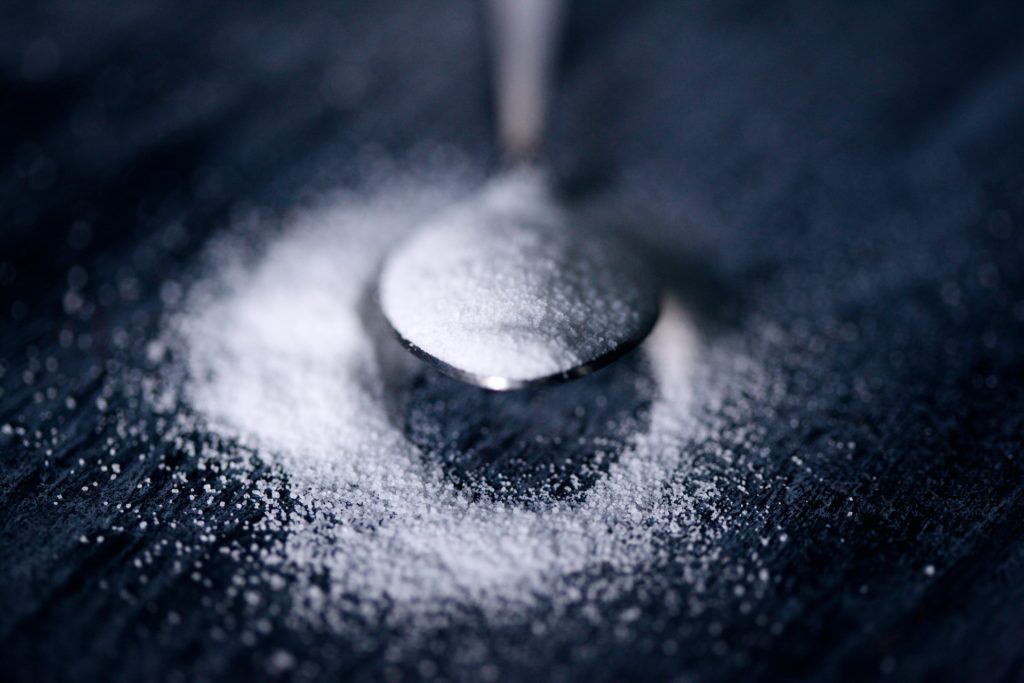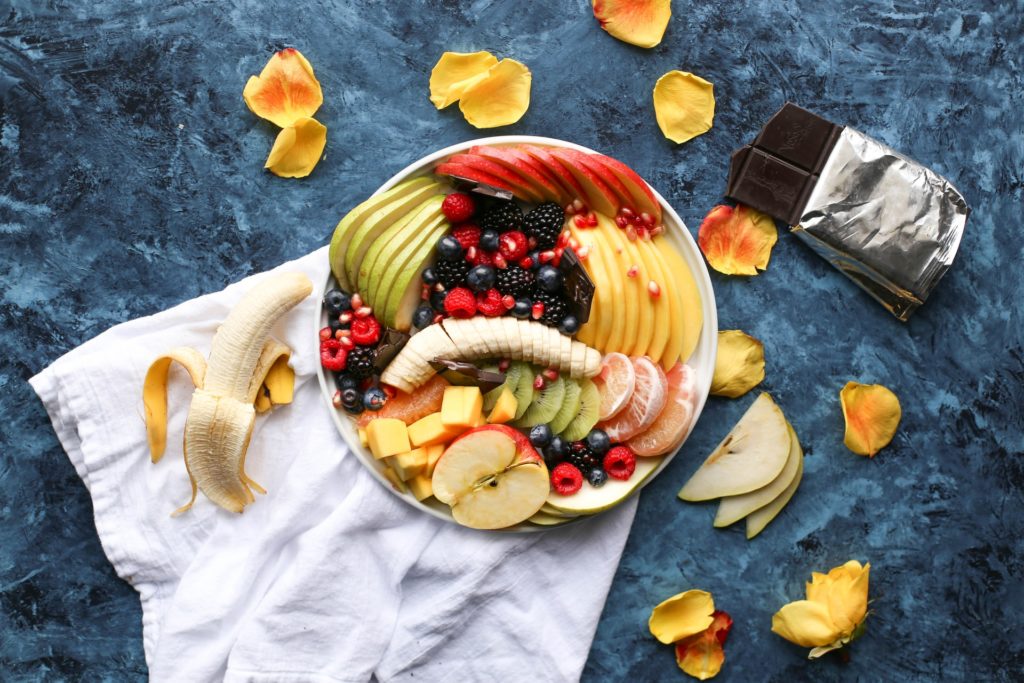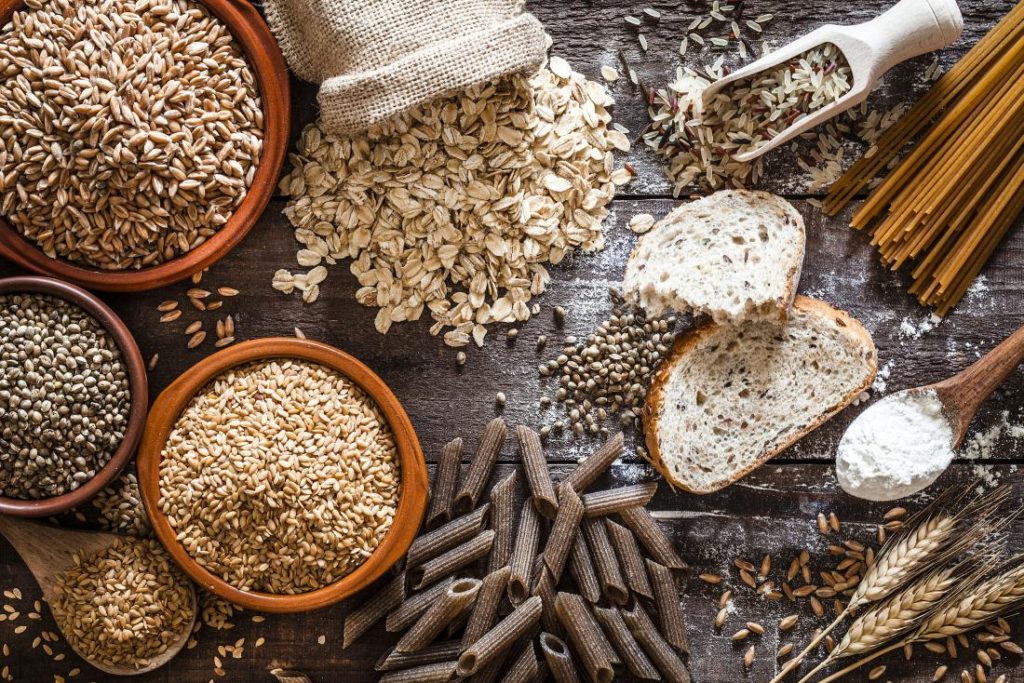Is sugar really making us fat?
Sugar is a carbohydrate which can be divided into 3 forms; (1) simple refined form (like plain sugar), (2) simple non-refined form (like fruit) and (3) complex form (like whole grains, potato, beans,…). The unrefined form has a significant amount of fibres. Complex ones like, potato, carrot or beans and so on, also have another form of resistant starches, which our good gut bacterias are feed from.
Refined form as white flour, sugary drinks, sweets – they are unhealthy ones, as they lack fibres and micronutrients. That form of sugar causes cravings in more than 95%. Little amounts do not affect our body weight directly, but as a consequence of cravings, we usually can not stop by consuming it just a little. Then the excess amount of calories becomes the main problem, not the sugar itself per se. Additional to this, satiety can be regulated with the number of fibres and protein consumed, as well as the food volume and liquid density of it, which sugary foods lack it as they are mostly dehydrated foods. Consequently, in that case, we cannot maintain satiety for longer. Bottom line, consuming too much sugar, especially sugary drinks can have an impact on body weight. Sweets, doughnuts, croissants and similar comes in a package with a lot more of fat than sugar even tho it tastes sweet. Misleading we are thinking we gained weight because of the carbohydrates, but actually, in 90% of cases, the blame is on the content of the fat. So the combination of oils or dairy fats, combined with sugar plays a much more significant role in talking about increasing obesity and visceral fat in the body. Even cravings are not the main problem, lack of nutrients is a problem and that it is easy to overconsume calories is.
Simple Refined Sugar / Simple Non-Refined Sugar / Complex Sugar
Are carbohydrates making us fat!?
As mentioned already, there are different types of carbohydrates and to start this way; junk carbs are unhealthy for sure. Refined carbs are not the main contributor in being overweight, they are top 3 main reasons for obesity, but they are definitely not the number one problem. Let us understand the fat a little as otherwise, we cannot fully understand the carbohydrates situation. Fat is a concentrated source of calories normally stored in the body fat. When we look at the physiology there is no metabolic consumption towards the body fat. Only 3% of intake gets burned, 97% of fat consumed gets stored into body fat immediately. We want to convince ourself that oil (any 100% oil), consumed, will not store as fat, but we want to believe that carbohydrates will transform into fat and get stored as body fat. In a normal mixed diet without overfeeding, consumed fat is 10 times more efficiently stored as body fat than carbohydrate, this is the fact. Without overfeeding, the conversion rate of carbohydrate is non-existent. People see themselves gaining 5 kilograms easily because this is the result of combining the two. We do not have the sensors for fat and if it is 95% of fat with added sugar it feels like we are eating carbohydrates. Actually we are eating a lot of fat, but we will be blaming carbohydrates for our fat gain. There is an opinion that carbohydrates affect the insulin secretion more than high-fat food, which is true, just until you check the science. Three slices of cheese produce a much bigger spike compared to 200g of white potato or white rice or white pasta.
The conclusion is that we cannot put all of the carbohydrates in the same box, it is misleading.
Source: Boštjan Jakše, Physical Educational teacher and conditioning coach. PhD in Nutrition. Author of the book “Chronically ill are business” (Slovenian version) and many other studies in Nutrition.




